December is the month of reading wrap-ups for the year. See Book Riot, Contingent Magazine, NPR, Smithsonian Magazine, and many more. Here is simply a roundup of a few of the books relating to U.S. intellectual history that I’ve enjoyed recently. Happy reading, and happy holidays!
Myth America: Historians Take On the Biggest Legends and Lies About Our Past by Kevin M. Kruse and Julian E. Zelizer (New York: Basic Books, 2022)
Edited by Princeton History Professors Kevin Kruse and Julian Zelizer, each chapter of Myth America unpacks, historicizes, and debunks an American myth. Chapters include the topics of immigration from Erika Lee, empire from Daniel Immerwahr, socialism from Michael Kazin, the New Deal from Eric Rachway, the Lost Cause from Karen L. Cox, and many more on contemporary politics by Glenda Gilmore, Lawrence Glickman, Elizabeth Hinton, Kathleen Belew, Natalia Mehlman Petrzela, and more. The introduction historicizes myth-making: the media environment and the Right’s assault on truth. Ultimately, the contributors’ chapters transcend that context. Myths involving exceptionalism, “vanishing” Native Americans, hidden empire, and the Lost Cause have consistently infiltrated the full political spectrum. Myth America takes a stab at unpacking and debunking them.
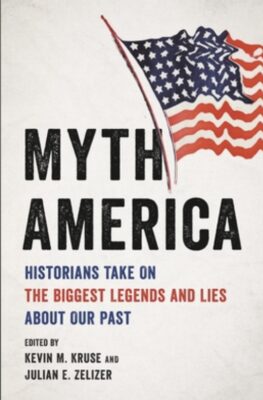
#antisemitism: Coming of Age During the Resurgence of Hate by Samantha A. Vinokor-Meinrath (Santa Barbara, CA: ABC-CLIO, 2022)
Jewish educator Samantha Vinokor-Meinrath, Ed.D., takes antisemitism seriously as a prevalent issue facing young Americans in her 2022 book #antisemitism: Coming of Age during the Resurgence of Hate. Vinokor-Meinrath writes: “To be at a life stage of trying to figure out where you stand in relation to your faith and cultural identity in the first place, and then to have a sense of attack, can fundamentally shape the lifelong relationship that this generation will have with Judaism.” The book includes social media, the Pittsburgh Tree of Life synagogue massacre, wearing Judaica, intersectionality, Jewish people of color, and more topics. Though published in a scholarly setting, #antisemitism’s conversational tone makes it a must-read especially for its intended focus: Gen-Z. Vinokor-Meinrath writes, “antisemitism is confusing in its complexity,” and this book is an ideal place to start.
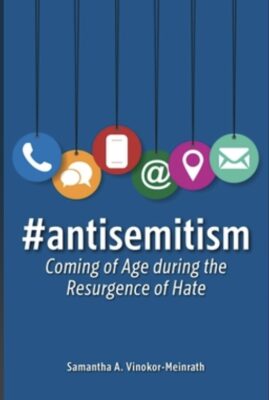
A Mystery of Mysteries: The Death and Life of Edgar Allan Poe by Mark Dawidziak (New York: St. Martin’s Press, 2023)
A Mystery of Mysteries examines Edgar Allan Poe’s “life through a lens of fashioned from the mystery of his death.” While the cause of Poe’s death remains inconclusive and unprovable, author Mark Dawidziak concludes and proves that historical memory of Poe remains shaped by Poe’s rival who framed him as “immoral, arrogant, unbalanced, dishonest, envious, conceited, and dishonorable” immediately postmortem. Dawidziak questions: “Would you, however, have recognized Poe if you passed him on the streets of Philadelphia in, say, 1841? This Poe would be slim and robust, sans mustache but with stylish sideburns… If one photograph existed that caught Poe laughing, how might it shatter the caricature?” The real Poe was “first a tremendously tough critic, second a poet, and third as the author of tales of mystery and horror.” His social media bio might’ve been Critic. Poet. Author of tales of mystery and horror. With a talent for “psychological terror,” Poe remains widely read, a “renewable literary force being constantly reintroduced in public and private school curricula from the seventh grade onward,” raising countless adults who identify with or remember at least one of Poe’s works fondly.
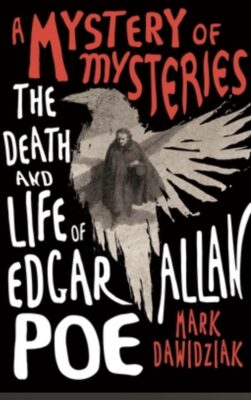
Nothing But the Night: Leopold & Loeb and the Truth Behind the Murder That Rocked 1920s America by Greg King and Penny Wilson (New York: St. Martin’s Press, 2022)
Nothing But the Night is a fresh, trade-press book on the notorious Leopold and Loeb story. Nathan Leopold and Richard Loeb were rich, young geniuses who read Nietzsche, felt bored, and gruesomely murdered their neighbor Bobby Franks. The crime resulted in the death penalty itself going on trial. Famed lawyer Clarence Darrow presented a case against the death penalty, winning life sentences for Leopold and Loeb. A quintessentially early-twentieth century media circus surrounded the trial. Nothing But the Night covers all of the above and more, examining deeper than the themes of capital punishment, media and modernism. For example, the authors criticize Darrow’s renowned closing argument: “His arguments about responsibility, or lack thereof, were absurd: Darrow blamed the killers’ parents, the University of Chicago, Nietzsche, the philosopher’s publisher – anyone and everyone except Richard and Nation.” The American reception history of Friedrich Nietzsche is captured in historian Jennifer Ratner-Rosenhagen’s 2011 book American Nietzsche.
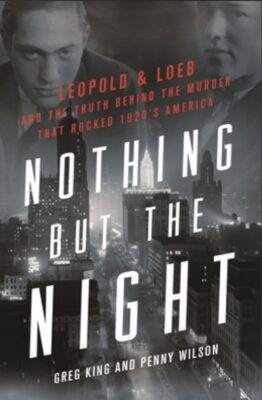
Watergate: A New History by Garrett M. Graff (New York: Avid Reader Press, 2022)
Watergate by Garrett M. Graff is the first complete synthesis of the iconic political scandal. Watergate made “-gate” a suffix, and its media coverage inspired generations of journalists. Graff’s book opens with Mark Felt revealing on his deathbed that he was the famous “Deep Throat.” Graff quips that “it’s hard to know whom to trust when you’re telling a story where nearly every major player ended up being charged with lying, perjury, or obstruction of justice.” Graff’s engaging 832-page narrative helps readers to understand an attempt to cheat in the 1972 presidential election, the notorious coverup, and the historic media coverage.
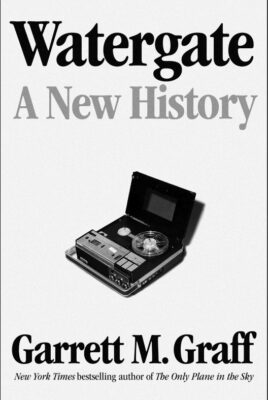

2 Thoughts on this Post
S-USIH Comment Policy
We ask that those who participate in the discussions generated in the Comments section do so with the same decorum as they would in any other academic setting or context. Since the USIH bloggers write under our real names, we would prefer that our commenters also identify themselves by their real name. As our primary goal is to stimulate and engage in fruitful and productive discussion, ad hominem attacks (personal or professional), unnecessary insults, and/or mean-spiritedness have no place in the USIH Blog’s Comments section. Therefore, we reserve the right to remove any comments that contain any of the above and/or are not intended to further the discussion of the topic of the post. We welcome suggestions for corrections to any of our posts. As the official blog of the Society of US Intellectual History, we hope to foster a diverse community of scholars and readers who engage with one another in discussions of US intellectual history, broadly understood.
I haven’t read the King and Wilson book, but it strikes me as a bit peculiar for them to criticize Darrow’s closing argument in the way that they do (based on the quote here). Darrow was Leopold and Loeb’s lawyer, so naturally he was going to place responsibility elsewhere; generally speaking, that is what a defense lawyer is supposed to do. Now maybe King and Wilson are simply saying that they don’t think the jury should have found Darrow’s argument persuasive. That’s different from suggesting he shouldn’t have made it.
P.s. Of course, what the defense argues will depend on its strategy in the particular case.